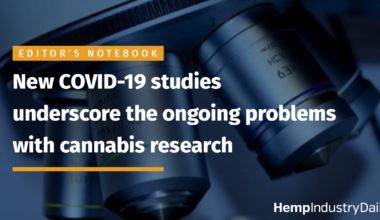A Mississippi marijuana laboratory alleged that cannabis products sold in gasoline stations and convenience stores in the state contain potentially dangerous contaminants and far more delta-9 THC than is legal.
Steep Hill Mississippi representatives said at the lab operator tested products and found some contained 12%-14% THC and a long list of pesticides, according to the Jackson-based Clarion Ledger.
The products in question were advertised as hemp-derived, which are legal under the 2018 Farm Bill but aren’t federally regulated.
Hemp is defined as containing no more than 0.3% THC, but more potent products can be made from hemp.
Medical marijuana is legal in Mississippi if obtained from state-licensed dispensaries. Adult-use marijuana is not.
According to Steep Hill officials, the pesticides they detected – bifenazate, chlorantraniliprole, diazinon, malathion, metalaxyl, myclobutanil, permethrins and spinosad – would fail medical cannabis lab standards in the state.
The lab tested smokables, vapes and edibles but did not identify the brands.
Since the 2018 Farm Bill was signed into law, state governments are taking different approaches to regulating hemp-derived products.
Alaska regulators, for example, want hemp-derived products to fall under the purview of marijuana regulators.
Mississippi state Rep. Lee Yancey, a Republican who co-wrote the state’s MMJ legislation, told the Clarion Ledger he plans to file a bill next year that would regulate hemp-derived products.
It’s not clear yet what limits the bill could put on hemp.
“It (the bill) could do one of many things,” Yancey told the newspaper.
“It could require them (the products) to be tested in the state of Mississippi. It could require an age limit. We could do an all-out ban on anything that’s synthetic.
“These products are causing problems in all 82 counties.”
In November, the Farm Bill was extended to September 2024.
Medical Disclaimer:
The information provided in these blog posts is intended for general informational and educational purposes only. It is not a substitute for professional medical advice, diagnosis, or treatment. Always seek the advice of your physician or other qualified healthcare provider with any questions you may have regarding a medical condition. The use of any information provided in these blog posts is solely at your own risk. The authors and the website do not recommend or endorse any specific products, treatments, or procedures mentioned. Reliance on any information in these blog posts is solely at your own discretion.






